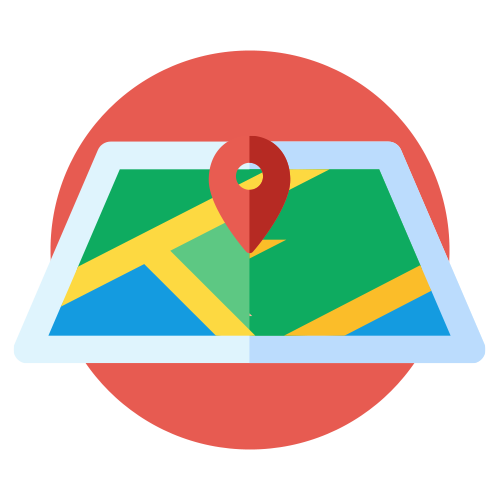- Starting a business in a taboo niche
- Growing a Business with a Virtual Office
- Advantages of Running a Business on Virtual Office Services
Q: Can I use virtual address for LLC?
A: Yes! A virtual address is a physical location that receives mail for you and can serve as an official business address for your company. To use a virtual address for LLC registration just choose a plan then use your new virtual address on your articles of organization.
Want to talk about insurance?
*Groan*
Okay, probably not. Because let’s be honest, most of us pay our insurance premiums begrudgingly. We do it because we have to, not because we want to.
But even though insurance may be considered a ‘necessary evil’, the majority of people readily insure the things that matter most to them. It’s comforting to know that we’re financially covered should the worst happen.
In short, we pay for peace of mind.
Of course, these days there is insurance for just about anything. Smartphone, coin collection, concert tickets, travel luggage, shoes, the list goes on.
That means the insurance industry is rich with opportunities to provide tailored coverage for virtually anything. If someone holds it dear, it’s worth insuring.
So what about your life?
As insurance-worthy items go, life cover is surely top of the list.
And yet, it’s a surprisingly challenging space to operate in.
That’s what Alexandra discovered when she started her own business in 2018, Monument Insurance Group*, specializing in final expense life insurance.
Alexandra moved to the US from Venezuela in 2014 and worked for several years as a District Manager for a large life insurance company, LH Insurance Group (name edited).
Alexandra later set up her own business as an affiliate agency partner to LH Group.
Although Alexandra had many years of experience in the insurance industry, she encountered numerous challenges during her startup journey.
She has overcome some of these challenges with the help of a Virtual Office, and during a phone call with Alliance, Alexandra told us about some of the important lessons and experiences she has encountered along the way.
Good news is, she is happy to share her story in order to help other businesses who are just starting out. So if you’re wondering how to start and grow a company with limited resources, you’ve come to the right place.
Here’s Alexandra’s story.
*Personal and business details have been edited.

The Story of an Insurance Startup
Alexandra’s entrepreneurial journey hasn’t been easy.
Starting a business and getting accustomed to the legalities and terminologies of entrepreneurship is tricky enough. Double that when English is your second language.
However, that’s where setting up as a partner to a long-standing brand with an established affiliate program has helped.
It gave her the support she needed to get started quickly, allowing her to lean on LH Group for advice or support during the setup process.
At the same time, she could still maintain the freedom to create her own brand and enjoy the flexibility she has always wanted to run her own business, her way.

Cultural Challenges
Like many entrepreneurs, Alexandra wanted the freedom and flexibility to work for herself, build a brand, and grow her own business.
That was one of the main motivations for becoming her own boss.
Another motivation for setting up on her own is that she has always wanted to help people achieve financial freedom and security by choosing the right type of insurance.
As every insurance customer knows, choosing an insurance provider — let alone the appropriate level of cover that matches your needs and budget — can be incredibly difficult.
According to Emilie R. Goldman, a financial planner in San Mateo, California, choosing a life insurance policy “is one of those things that people put off”.
That’s because most people think they already have enough coverage through their workplace benefits program.
Few people bother to check whether it provides ample cover. Even if it doesn’t, many people delay topping it up, either because of the extra cost or simply the hassle of selecting a provider.
For Alexandra, this reluctance to talk or even think about life cover is one of the top challenges she experiences in her business.
And since her particular niche is end-of-life cover and funeral expenses, people are even less motivated to talk about it.
It feels too far away.
Too final.
We’re only human after all, and this is a common characteristic shared by the majority of clients Alexandra works with.
But it’s not just a ‘head in the sand’ mentality.
It’s also a cultural challenge.
Alexandra told us that she finds Hispanic clients particularly challenging to work with. She believes that many aren’t given enough choice over the type of insurance available, and are put off by the lack of appropriate cover or the cost. Or both.
Therefore much of her role is focused on educating people about the importance of life insurance and the range of options available.
This was another reason why Alexandra wanted to set up her own business.
She wanted to utilize her years of experience from LH Group to help people understand the necessity of life insurance, and help make those difficult decisions a little easier.

Business Structure
As an affiliate agency partner, Alexandra operates her business under her own brand and earns commission by marketing and selling LH Group’s products and services.
Alexandra started her business in 2018 as a sole proprietor based at home.
Since then, she has grown her business to cover four States: Utah, Florida, Texas and Nevada.
In addition to selling insurance in these locations, she also trains people to become sales agents, enabling her to expand her reach and sell more products.
Therefore Alexandra’s mission is two-fold:
- Sales: Provide appropriate insurance to families to help with final expenses
- Training and management: Provide training to agents who want to join Monument and/or start their own affiliate brand in the insurance industry.
Currently, she manages a geographically dispersed team of 30 people who operate across Utah, Florida, Texas and Nevada.
Demanding much?
Yes.
Both of these roles require a significant amount of in-person communication and therefore plenty of travelling.
Alexandra works around her clients’ schedules, and it’s not uncommon for her to work 12-14 hours a day.
Under normal circumstances, she would travel to customers’ homes to carry out consultations. For training, she would book a large meeting room for one or two days, sometimes more.
Of course, during the pandemic much of this work was carried out virtually; currently she works from home and uses online video and presentation tools to meet with clients or agents.
Now, Alexandra is able to resume at least some of her visits and training schedules, which she finds is much more successful than setting up calls over video.
That’s because meeting people in-person feels much more human.
It helps build a more friendly and personal relationship that video simply can’t replace — particularly when the subject matter focuses on sensitive conversations around end-of-life care.
Plus, the language barrier means that Alexandra finds face-to-face communication much easier than telephone or video calls.
We all know how a spotty connection or Internet lag can make conversations much more difficult to understand, and that challenge is amplified when conversing in a second language.

The “central role” of Immigrant Business Owners
If you’re wondering how many immigrants start their own business in the U.S., it’s about 3.2 million.
This data shows the “central role immigrants play in every state in the union as workers, consumers, entrepreneurs, and homeowners,” said John Feinblatt, President of New American Economy. “The findings show that immigration creates an economic opportunity — creating jobs, filling workforce gaps, and helping communities thrive.”
To realize these opportunities, Alexandra is working to overcome numerous challenges.
Long hours and hard work are all part of the journey. Language is one more obstacle that she’s working to overcome — and she’s getting there, one day at a time.
She has already come a long way in an incredibly short space of time.
In just two years, she has started her own business and is now operating across four states.
She is managing a team of 30+ people.
She has continued to operate successfully during a pandemic.
And she is doing all this while learning English as a second language.
Add to that, A recent report by McKinsey (September 2020) acknowledged that life insurers have experienced increasing challenges over the past decade.
The COVID-19 pandemic has depressed global interest rates even lower than those seen in the 2007–08 global financial crisis, leading to disproportionate impact on life insurance stock relative to the rest of the market.”
Granted, the life insurance industry isn’t all plain sailing, and there may be headwinds ahead.
But Alexandra seems to thrive on a challenge and is seeking to grow her business.
And she’s not alone.
Research studies suggest that immigrants are more likely to start their own businesses than people born in the U.S.
Why?
One theory is that people who move to a new country have a mindset that is very closely related to that of a business growth mindset. Writing for the Harvard Business Review (October 2018), Nataly Kelly describes it as an “immigrant mindset”:
People who are willing to uproot their lives in search of something better are the types of people who are determined to make change happen themselves. To migrate to a new country also takes a high level of confidence in one’s ability to change and a high level of tolerance for uncertainty. More importantly, they believe in their ability to figure things out and adapt once they get there.”
These qualities certainly sound a lot like Alexandra.
She is growth-oriented, adept at overcoming challenges, and is incredibly hardworking.
As such, she is currently focused on growing her business in three key ways:
- Expanding her sales team by training and appointing new agents.
- Learning English to reach more American clients and potentially enter new markets.
- Keeping costs low, which will enable her to reinvest the savings back into the business and continue expanding her team.
While she is learning English, Alexandra’s daughter, who lives in the U.S. and speaks English fluently, is working with her to help reach more U.S. clients.
As the business grows, it’s likely that her daughter — and potentially Alexandra too — will need a more permanent place to work.
At that point, she may need a permanent office.
During our call, Alexandra confided that she would like an office so that she has somewhere to work that’s more professional than working from home, and also less ‘nomadic’ than working from temporary spaces.
For now however, she admits she would rarely have time to use it.
That’s why she’s happy to use a Virtual Office. It suits her budget, it’s easy to use, and most importantly it fits her business needs.
Let’s take a closer look at how she uses her Virtual Office to grow her business.

Growing an Insurance Business with a Virtual Office
Given what we know about Alexandra’s business and lifestyle, it’s clear that at this stage, a full-time office is unnecessary.
Even if Alexandra or her daughter did have time to use it, they don’t need it.
Alexandra spends most of her time on the road, visiting customers or training in rented meeting rooms. When she does need a place to work, she uses a drop-in workspace by the hour (usually through her Virtual Office plan) or works from home.
A full-time office would simply be an unnecessarily large expense.
She also utilizes hotels when travelling, which comes at a cost. Therefore, any office space needs to be affordable and cost effective.
So what does she really need?
A flexible office or coworking space can fulfil all of these requirements. But again, the problem is that memberships include usage of physical office space, usually on a full-time basis.
So what is the alternative, and how did she find it?
Alexandra’s daughter found out about Virtual Offices when researching flexible office space options in the local area.
She discovered that a Virtual Office would allow her to maintain the appearance of an office, without the cost of maintaining the physical space that she would rarely use.
(If you’re wondering, ‘Can I use a virtual address for my LLC?’ the answer is yes. You can read more about it in our guide to LLC setup)
One of the main things that attracted her to a Virtual Office was the availability of onsite meeting rooms. Depending on the type of plan she chose, Alexandra could pay to use meeting rooms by the hour or have part-time access included with her monthly Virtual Office plan.
Given the frequency at which she held training sessions for new agents, access to meeting space was a top priority.
But not just access; the room had to be large enough to accommodate groups of people along with catering services and/or local coffee shops, parking, and local transport options.
Having learned about the concept, Alexandra and her daughter toured 4 local Virtual Office locations to see if the onsite meeting rooms and parking arrangements would meet their training needs.
Out of four possible options, one fitted the bill perfectly.
There were two plans available through Alliance with a variety of add-ons.
The first was a standard plan which included a business address, mail processing and pickup, and the option to use onsite meeting rooms by the hour.
The second was ‘Platinum Plus’, which included 16 hours of meeting room usage every month.
She chose the Platinum Plus option with inclusive meeting room usage.
Of course, sometimes she needs more or less than 16 hours each month. So why not just choose the standard Virtual Office plan and pay for extra meeting space ad hoc?
If she uses less, that’s easy — she can use up her remaining hours by working in a private office instead of a meeting room.
If she needs more than 16 hours, she can go ahead and reserve extra time by the hour.
But the hourly rate can quickly add up.
The key thing is value.
On average, Platinum Plus provides a saving of 60-70% compared to hourly meeting room rental.
Let’s do a quick cost comparison.
Once you remove the cost of a standard Virtual Office ($50), you’re left with $230 per month for 16 hours of meeting room usage.
Is it good value? Let’s find out.
Over a month, that $230 equates to just over $14 per hour for meeting room rental.
If you book meeting rooms at Cedar Springs separately, it costs $40 per hour. For the same 16 hours, that’s $640.
Would you rather pay $230 for inclusive meeting space per month, or $640 for ad hoc meeting space?
That’s an easy one. And that’s why Alexandra chose to upgrade to Platinum Plus.
Alexandra also has the option to utilize add-ons such as mail forwarding, a Live Receptionist call answering service, and a local business number with an online phone system.
She hasn’t added these services yet, as her daughter mainly supports her with admin and receptionist services. However as the business grows, she expects to start using a Live Receptionist service along with a local business number.

A Powerful Business Address
In addition to meeting space, one of the key advantages of a Virtual Office is the address.
Through speaking with the Alliance team, Alexandra learned that she could use the address for a number of important business functions, including:
- Registering her business entity and when the time comes, setting up an LLC
- Having mail received and stored for collection or redistributed
- Projecting a professional image to clients
- Protecting her home address
- Opening a business bank account and building a separate business credit score.
Can you register a business with a virtual address? Yes, you can. Once you have purchased a Virtual Office business address, you can use it on your articles of organization. Read more in our guide to LLC setup.
Another key element is flexibility.
A Virtual Office from Alliance starts with a 6-month term, and renews monthly.
During the challenging events of 2020, this has enabled Alexandra to run her business without the worry of long-term office commitments.
Having set up a Virtual Office, Alexandra now knows that she can set up more locations in other states, in a cost effective and low risk way, as her business grows.
Conclusion & Key Takeaways
All things considered, Alexandra has the right solution that fits her current needs, while also giving her business room to grow.
A Virtual Office allows her to work flexibly and save money on commercial real estate, so she can reinvest savings back into her business and focus on growth.
So what did she think of the process?
During our call, Alexandra said that the Alliance staff were “welcoming and helpful”.
She came to Alliance with many questions, including ‘How do I set up a virtual office for a small business?’ and ‘Can I use a virtual address for my business?’ — and with the help of Alliance’s friendly staff, she discovered that the process was quick and easy.
She told us that she is happy with her choice of Virtual Office; it meets her business needs by providing an easily accessible location with excellent meeting facilities.
Having a local business address also enables her to build a presence in the area and project a more professional image, which helps build trust with new clients.
Through her Virtual Office, Alexandra now has the freedom and flexibility she needs to grow her business and help more people in the process.
We look forward to following her progress in the years to come.
Want to achieve business growth? Check out www.alliancevirtualoffices.com and chat with us online to find out how we can help your business grow.











